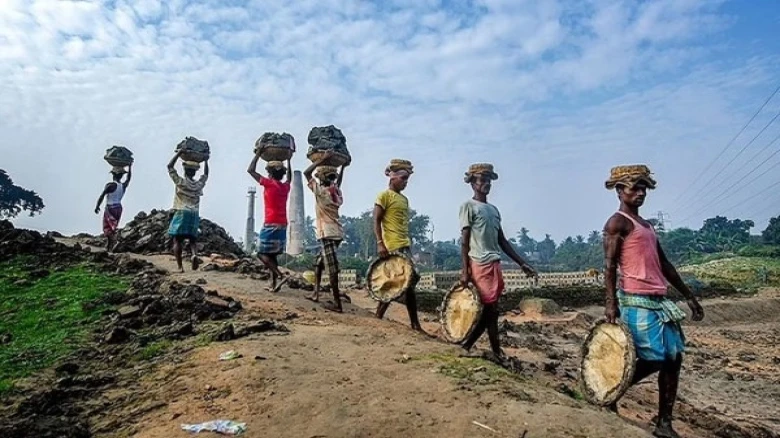The International Labour Organization and its partners point to concerning directions such as "commercial sexual exploitation," which concerns approximately one in every four individuals subjected to forced labor.
Digital Desk: The UN labour agency believes that 50 million people worldwide were living in "modern slavery" at the end of last year, either through forced labour or marriage, a 25% increase from its previous report five years ago.
The International Labour Organization and its partners point to concerning trends such as "commercial sexual exploitation," which affects approximately one in every four individuals subjected to forced labour, with the poor, women, and children bearing the brunt of the burden.
According to the ILO, the UN's International Organization for Migration, and the Walk Free Foundation, a rights organisation focused on contemporary slavery, 28 million people were in forced labour and 22 were in forced marriages at the end of 2021.
As mentioned in the report, such data represent an increase of 10 million individuals living in modern slavery since the last report was issued in 2017, based on figures from the previous year. However, in the mentioned report, forced marriages accounted for two-thirds of the increase.
Grace Forrest, the founding director of Walk Free, told the Associated Press in New York that the increase is roughly equal to Greece's population.
According to Forrest, the 50 million figure is "undoubtedly conservative because it includes gaps ranging from child marriage to the most heinous types of child labour." So this is the global baseline estimate of individuals living in modern slavery."
Based on available data, the ILO and its partners discovered an increase in child and forced marriages in Afghanistan, Bangladesh, Congo, Egypt, India, Uganda, and Yemen. However, the research stated that wealthier countries were "not immune" to the problem, with approximately one-fourth of all forced marriages occurring in high or upper-middle-income countries.
The coronavirus pandemic, climate change, and armed conflict have all contributed to recent increases in severe poverty, dangerous migration, and gender-based violence, boosting the likelihood of all types of contemporary slavery, according to the report.
Overall, more than two-thirds of all forced marriages were found in Asia-Pacific, the world's most populated area, but the largest number per capita was found in Arab countries, where about 5 out of every 1,000 people were in forced marriages.
According to the report, forced marriage is intimately linked to "long-established patriarchal beliefs and practises," with "family pressure" driving 85 per cent of cases. In terms of forced labour, one in every eight victims was a kid, and half of those were victims of commercial sexual exploitation.
"(Modern slavery) is a man-made problem, linked to both historical slavery and persistent structural inequalities," Walk Free's Forrest said in a statement, as the ILO director called for a larger battle.
The UN labour agency's Director-General, Guy Rider, has advocated for an "all-hands-on-deck" approach, saying that "trade unions, employers' groups, civil society, and ordinary people all have essential responsibilities to play."

Leave A Comment